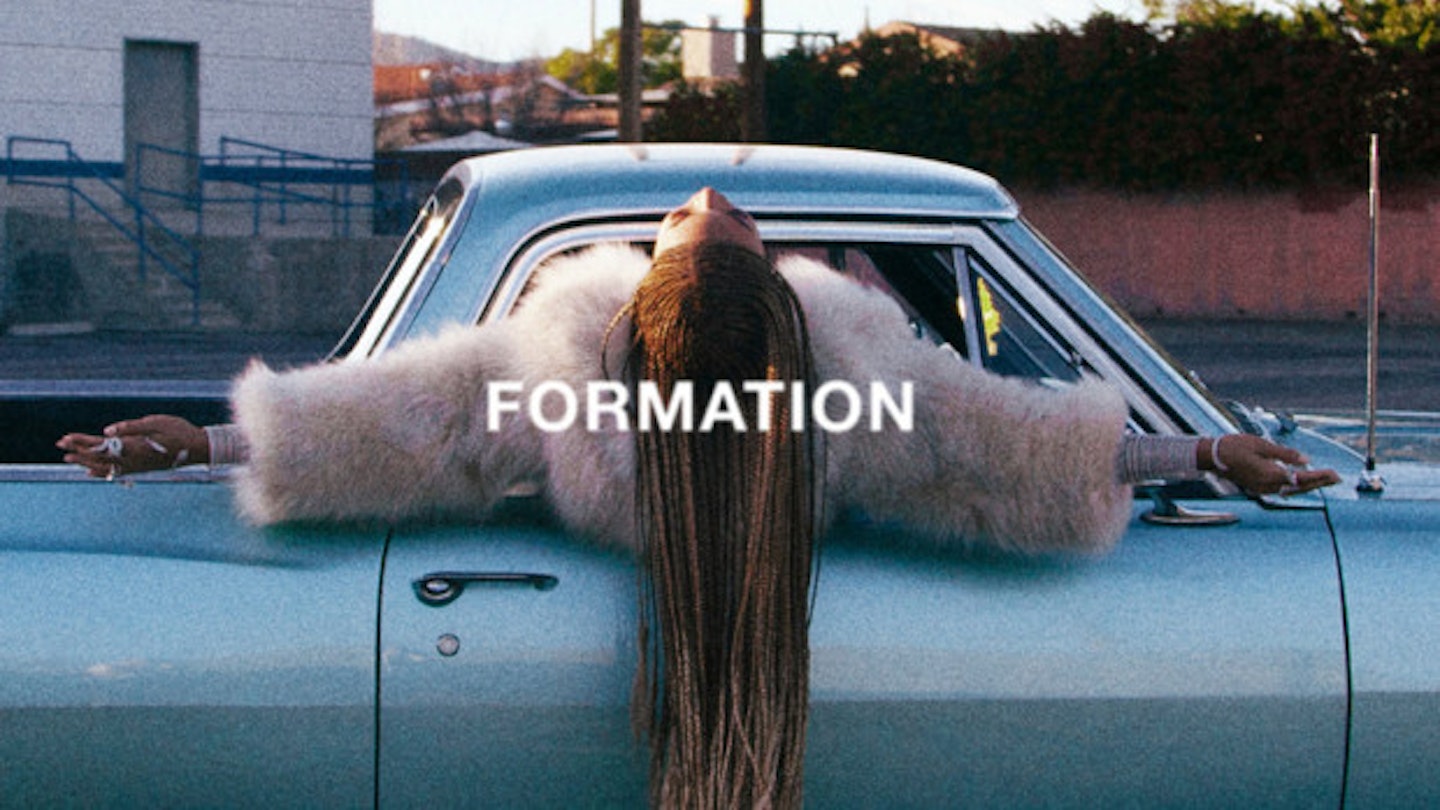On Saturday evening, the internet was thrown into chaos. Conversations on Twitter and Facebook aligned and the web exploded, as the world was left mesmerised by Beyoncé’s new music video, Formation. This wasn’t just a masterclass in musical excellence; Beyoncé used the single as a vehicle to drive home a political statement about the racial injustice that so often taints the black experience.
There is (IMO) no celebrity better placed to address racism than Beyoncé. She has managed to transcend her race, which is illustrated byher continual music triumphs, prestigious magazine covers and contracts with major cosmetic companies. To be a black woman and occupy space in institutions where the power players are predominately white is no mean feat. However, many in the past have argued that Beyoncé’s lighter skin complexion and 'white' features have had a helping hand in her mainstream appeal, but at the cost of allowing mainstream institutions to erase her race from her identity.
But in Formation, Beyoncé takes back her identity narrative and unapologetically places her blackness at the forefront with these self-assured lyrics:
'My daddy Alabama, Momma Louisiana.'
'You mix that negro with that Creole make a Texas bamma.'
With February being Black History Month in America, (FYI- ours in October) Beyoncé is telling the world about her black history and that her race has and will always be a part of her identity. She is taking control of her selfhood and, through these defiant lyrics of self-definition, Beyoncé is telling us, she will not be defined by other people’s versions of black womanhood, which are often reductionist stereotypes such as the 'angry black woman'. Furthermore, with this unapologetic and powerful image of a black woman, Beyoncé offers an antidote to the images of Sandra Bland, Sarah Reed and other young black girls who have been left powerless at the hands of the police brutality due to the intersection of their race and gender.
It isn’t just through this contrasting image of black womanhood that Beyoncé addresses the injustices of the criminal system. She boldly confronts police brutality through the graffiti reading 'STOP SHOOTING US' in the video and with the black child demonstrating the 'hands up, don’t shoot' gesture, and in the process shuts down critics of her 'supposed' silence on the police brutality saga.
While the video points out structural racism and uses striking images of black culture that specifically pertains to the African American experience; many of the lyrics speak to the global black experience. Beyoncé’s final line: 'the best revenge is your paper,' reinforces the importance of economic equality and this empowering lyric couldn’t come at a more poignant time for the black British demographic. It was only last week that David Cameron admitted the economic disparity of a 23% pay gap between black and white graduates with the same qualification. With black British women knowing this gap is even wider due to their gender, Formation is a much needed reminder that we must continue to break down racial barriers to gain economic equality, whether we are in black America or black Britain.
No doubt, black women on both sides of the Atlantic rejoiced as Beyoncé also confronted the beauty standards black women are held to by declaring:
'I like my baby hair, with baby hair and afros,'
'I like my Negro nose with Jackson Five nostrils.'
All too often, Eurocentric beauty standards are placed on a pedal and black features are condemned and no one knows this better than Beyoncé. Why? Because daughter Blue Ivy (who makes the cutest cameo in the video) has been at the centre of petition to comb her hair and been the source of public ridicule for her looks. With Formation featuring a range of different black women wearing afros and braids confidently, you can’t help but be proud of the black female body.
However, Beyoncé took black pride to another level when she paid tribute to Malcolm X and the Black Panther movement by having her dancers (all of them were black by the way) don afros in Black Panther outfits during her Superbowl performance. Beyoncé used one of the biggest stages in entertainment to make the statement that the she is actively pushing an activist agenda to confront and combat racism through her art. The most powerful black woman in entertainment used the Super Bowl to tell the Oscars and the entertainment industry in general to wake up and smell the coffee when it comes to diversity.
While Beyoncé has proved herself to be unpredictable with surprise albums, and flitting between musical genres, there is one thing I can predict. The yet to be named sixth album will unapologetically tell the world that #blacklivesmatter.
Like this? Then you might also be interested in:
Here’s What Happens When Beyoncé Turns Up At Your University
Beyoncé And Jay Z Have Been Bailing Out Baltimore Anti-Racism Protestors. Apparently.
Beyoncé's Vegan Diet Is Better Than Telling Fans To Starve Themselves
Follow Tobi on Twitter @IAmTobiOredein
This article originally appeared on The Debrief.
